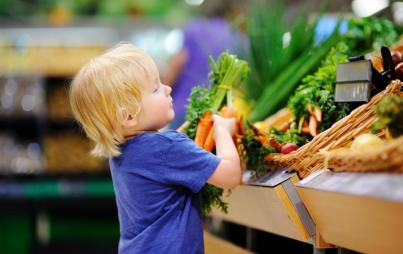
Food writer Tamar Haspel makes some interesting arguments that are inspiring us to rethink our culinary hierarchy of ethics:
The argument that a vegetarian diet is more planet-friendly than a carnivorous one is straightforward: If we feed plants to animals, and then eat the animals, we use more resources and produce more greenhouse gases than if we simply eat the plants. As with most arguments about our food supply, though, it’s not that simple.
She makes it more-than-clear that food decisions get more complicated and morally-ambiguous the farther you go down the rabbit hole. Let’s examine two of her points dear Ravishers:
1. Is meat always less sustainable than vegetables?
Food sustainability is often ranked (according to Environmental Working Group data) on the amount of carbon emissions generated in production. In this case, the list of tsk, tsk, offenders from very worst to very best are (drum roll please!):
Lamb and beef (both animals produce heat-trapping methane gas like it’s goin' out of style), then pork, turkey and chicken. Plants (predictably) rank the lowest.
But wait—there’s another variable to consider! Calories. Food comparisons often look simply at weight comparisons, but a kilogram of beef obviously doesn’t have the same number of calories as a kilogram of broccoli. Rats. You have to significantly increase the quantity of plants to equal meat in sustenance provision.
So, let’s look at our rankings again, calorie to calorie. Lamb and beef still look bad, but now pork and poultry are essentially equal to green vegetables, environmentally speaking.
Is your mind blown yet?
Granted, Haspel is leaving out the effect of taste preference in quantities eaten. I’d wager that most of us could happily consume 500 calories of BBQ sauce-laden chicken in one sitting but probably not 500 calories of broccoli—blech!—even if that meant walking away hungry. And because humans can't seem to help glutting ourselves on foods that tap into our taste bud sweet spots, we're ever-complicating the issue.
2. Can eating certain animals actually do a heavy for the planet?
Factory-farmed meat has question marks all over it—there are a million trade-offs for different methods of procuring hamburgers (besides the fact it's almost impossible to procure the provenance of your freaky farmed meat anyway). Organic food appears to yield significantly less carbon emissions, but its yields are also generally lower (thus less efficient). Local food—ironically—can have bigger environmental footprints than food transported long distances if the far-off farm uses more efficient methods. And the cultivation of animals to increase efficiencies and lower greenhouse gases can also raise animal-welfare concerns regarding close confinement and other problems.
Then there's the hunting option. Killing and processing your own meat takes out the middle man, and removes a whole slew of issues associated with raising animals. And taking out certain animals can actually be environmentally beneficial: As Haspel points out, deer and geese can do damage to their environments when they’re overpopulated, and wild pigs are especially destructive. But few of us are keen to shoot Bambi, and hunting and processing your own meat is inconvenient as hell—not to mention pretty impractical for city-dwellers.
In summary, some meat can probably be as environmentally-sound as veggies and nothing is easy or straightforward when making food choices.
(Image: commons.wikimedia.org)






